Take a hike to the small, picturesque fishing village of Pasajes and discover some of the Basque Country’s freshest seafood.
The town of Pasajes (Pasaia in Basque) is a small, fairytale-like fishing village located less than 10 kilometers away from San Sebastian. Attractive small squares, delicious gastronomy, medieval architecture with colorful houses—Pasajes has it all.
The town is actually formed by four different districts, with San Pedro and San Juan (Donibane in Basque) being the two most famous villages facing each other on either side of the bay, right by the port of Pasajes. The two villages are connected by a small motor boat that circles between them all day long.
Sounds like something to see, right? Here’s everything you need to know when planning a day trip to Pasajes, Spain.
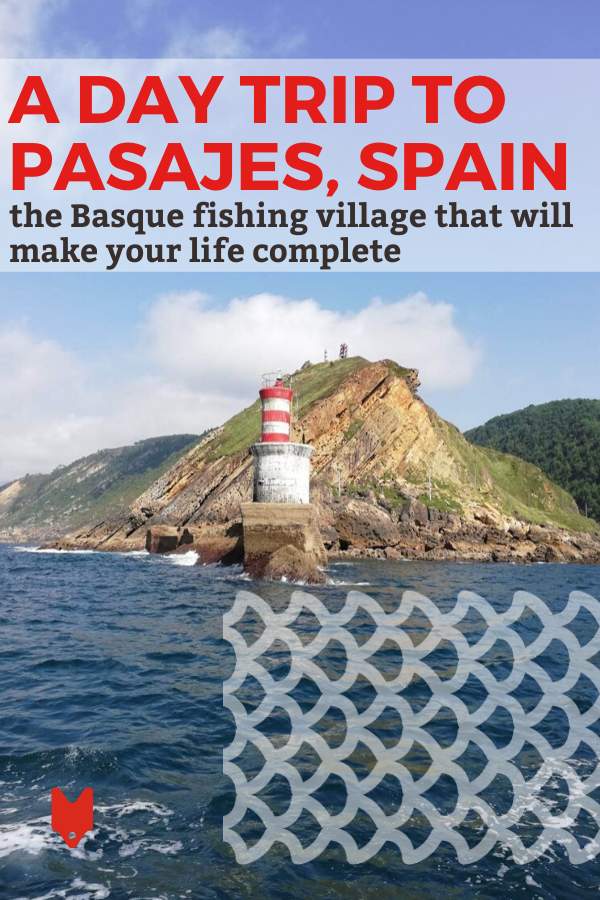
A town full of history and maritime culture
Pasajes has been an important Basque port throughout history, and these days it’s still the biggest industrial port in Gipuzkoa province. Before the Industrial Revolution, Pasajes was the base point of Basque whalers, and some of history’s biggest and most impressive whale ships were built right here, in the 16th century.
Proximity to the sea marks everything in Pasajes. Historically, and to this day, rowing has been an important activity in all the fishing towns of the Basque Country. A big rowing competition is held annually in San Sebastian in September, and all the competing villages have their own team of thirteen oarsmen rowing a 12-meter boat, called traineras. Pasajes is famous for having two teams participating in the race: San Pedro and San Juan. This is one of the most important events of the year for the locals, and training and getting prepared for the race takes months.
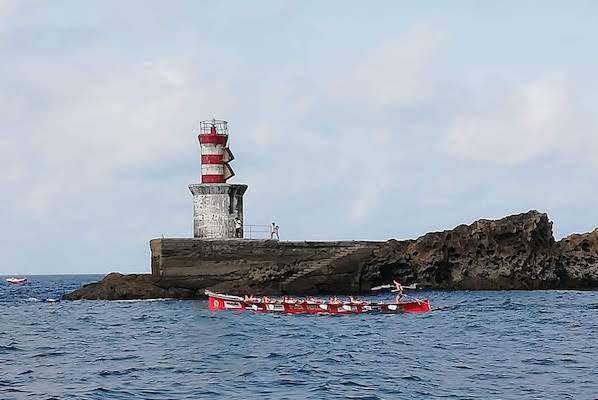
Hike from San Sebastian to Pasajes
Hiking enthusiast? Good news! There’s a wonderful coastal route all the way from San Sebastian to the village of Pasajes, and the hike actually forms part of the Camino de Santiago. If walking the Camino has been your dream but the entire route seems impossible because of limited time or other obstacles, this is your chance to experience a small part of it—and a beautiful part indeed!
The route starts from the easternmost corner of San Sebastian, the Gros neighborhood, right below Mount Ulia. The roughly two-hour hike is a great workout—think steep hills and breathtaking views. You can find more details about the route here.
If hiking isn’t an option for you, no worries! There’s a bus connection (E09) running all day from the center of San Sebastian right to the heart of Pasajes San Pedro, and it takes around 15 minutes to arrive there.
Insider’s tip: If you’re tired after the two-hour hike to Pasajes, you can always catch a bus back to San Sebastian rather than making the trek again.
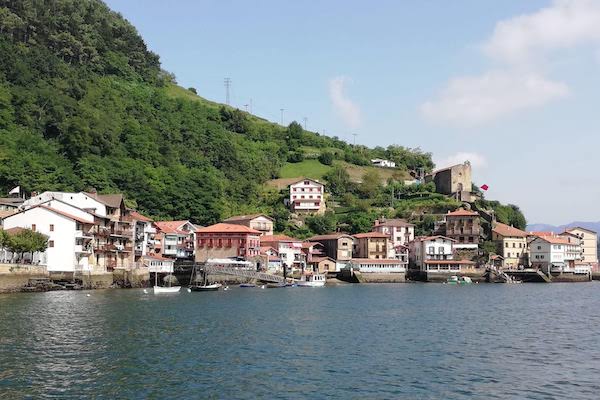
Top things to do in Pasajes, Spain
Try amazing seafood
Despite being a small village, Pasajes has achieved fame as a special gastronomic destination. For a delicious lunch or dinner we recommend heading to the San Juan side of town, which has plenty of nice, cozy bars and restaurants. Needless to say, the seafood here couldn’t be any more delicious and fresh!
For a bunch of local and traditional fishermen’s pubs, head to Plaza de Santiago. Around the square you’ll find many delicious pintxos places, all of them with nice terraces facing the bay. Be aware when trying to find a free table—on a sunny day it can get crowded!
If you’re looking for a full menu instead of pintxos, Casa Cámara is an absolute classic that can’t be missed. This is a historic place with long traditions and it’s been run by the same family since 1884. Apart from serving some of the most delicious fresh fish around San Sebastian, Casa Cámara also has a lovely sea view over the bay, and while dining you can observe the ships and boats coming and going.
Insider’s tip: Try Casa Cámara’s delicious monkfish, and pair it with some fresh txakoli, the local white wine.
If you decide to stay on the San Pedro side of town, then you must try Muguruza Ardoak, also known as the Falcon Crest of Pasajes. This is the best local wine bar that offers pintxos and different types of fish prepared the Basque way—selection changes depending on the catch of the day.
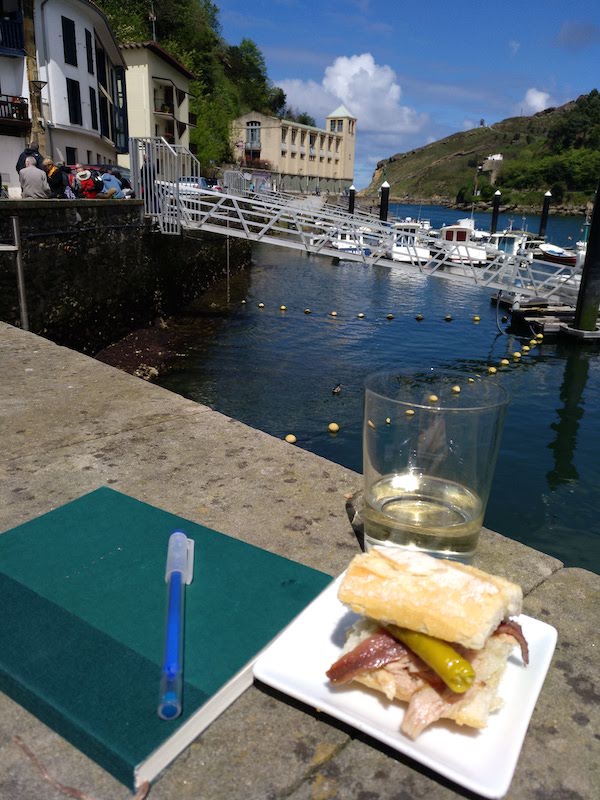
Explore the Albaola Museum
If you want to get a taste of what the whaling lifestyle in Pasajes was centuries ago, head to the Albaola Museum in Pasaia San Pedro. Here you get to learn all about the primitive shipbuilding techniques and whaler lifestyle.
The highlight of the museum is the Nao San Juan, a 16th century whaleship replica that’s currently under construction. In its heyday, the San Juan was one of the first transoceanic ships that sailed all the way from the Basque Country to Newfoundland, where it unfortunately sank in 1565.
The museum can be visited from Tuesday to Sunday and a general ticket costs €7.
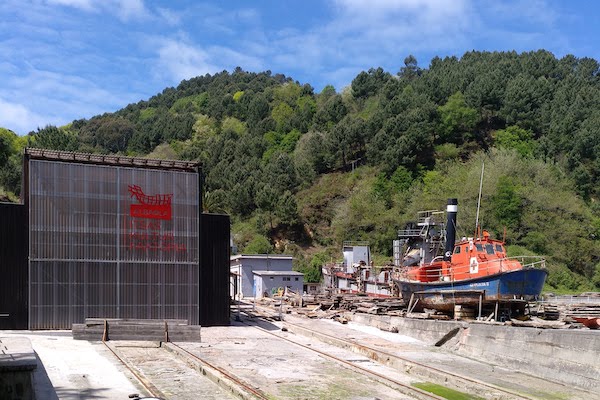
Visit the home of Victor Hugo
Like so many others, the world-famous French poet and novelist Victor Hugo fell in love with Pasajes during his trip to San Sebastian in 1843, and decided to stay for a summer, writing. The house that served as his home for these months still stands there, on the San Juan side of town, and is open to visitors.
At Casa de Victor Hugo you get to see what a typical 17th-century house in Pasajes looked like. Here it is easy to imagine what inspired the poet to stay: was it the idyllic village, its breathtaking views to the Bay of Biscay, or was it the nature that surrounds the village in every direction? Probably the combination of all of it.
The museum is open from Tuesday to Saturday during winter and from Monday to Sunday during the summer months. Entrance is free.